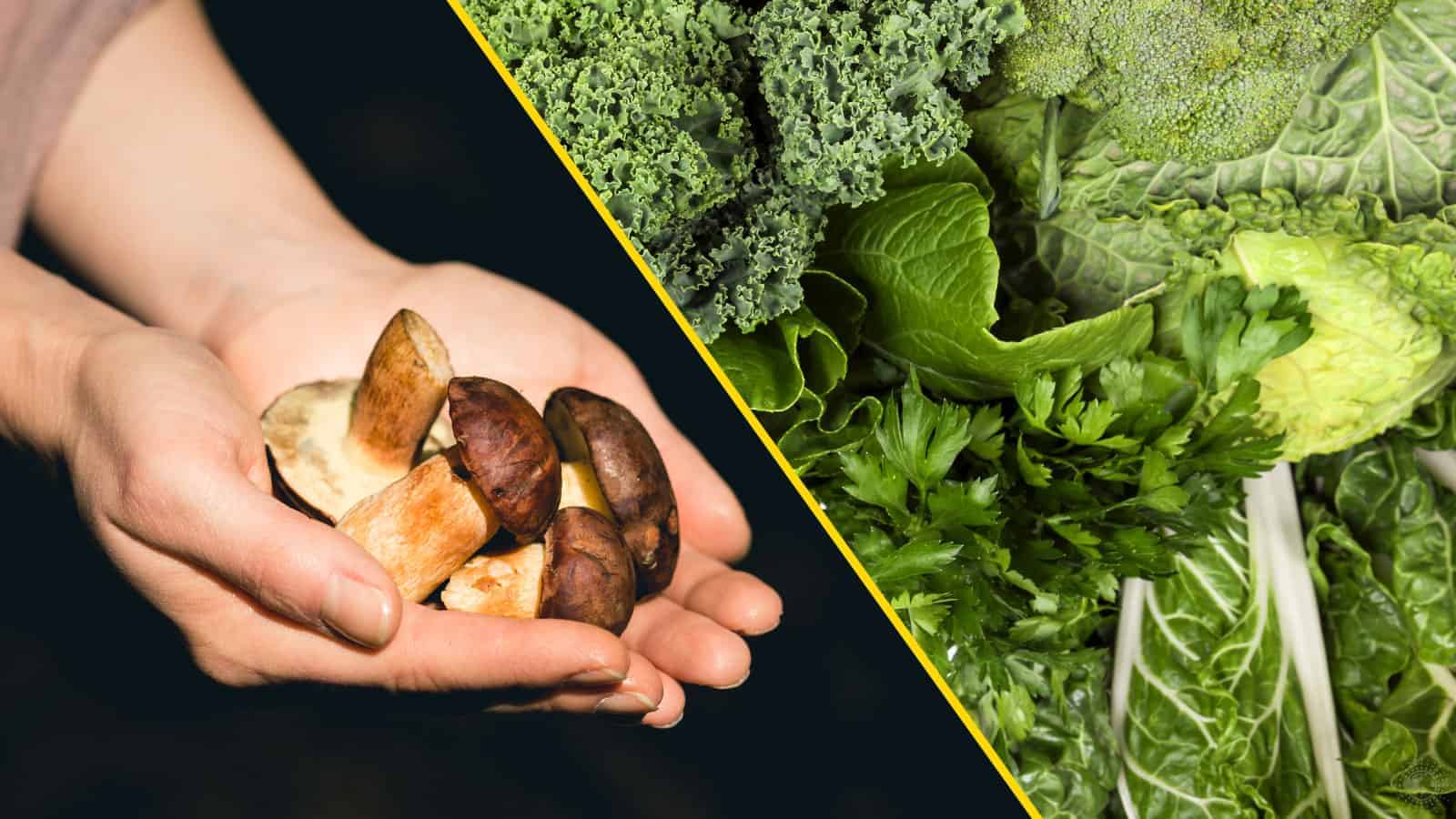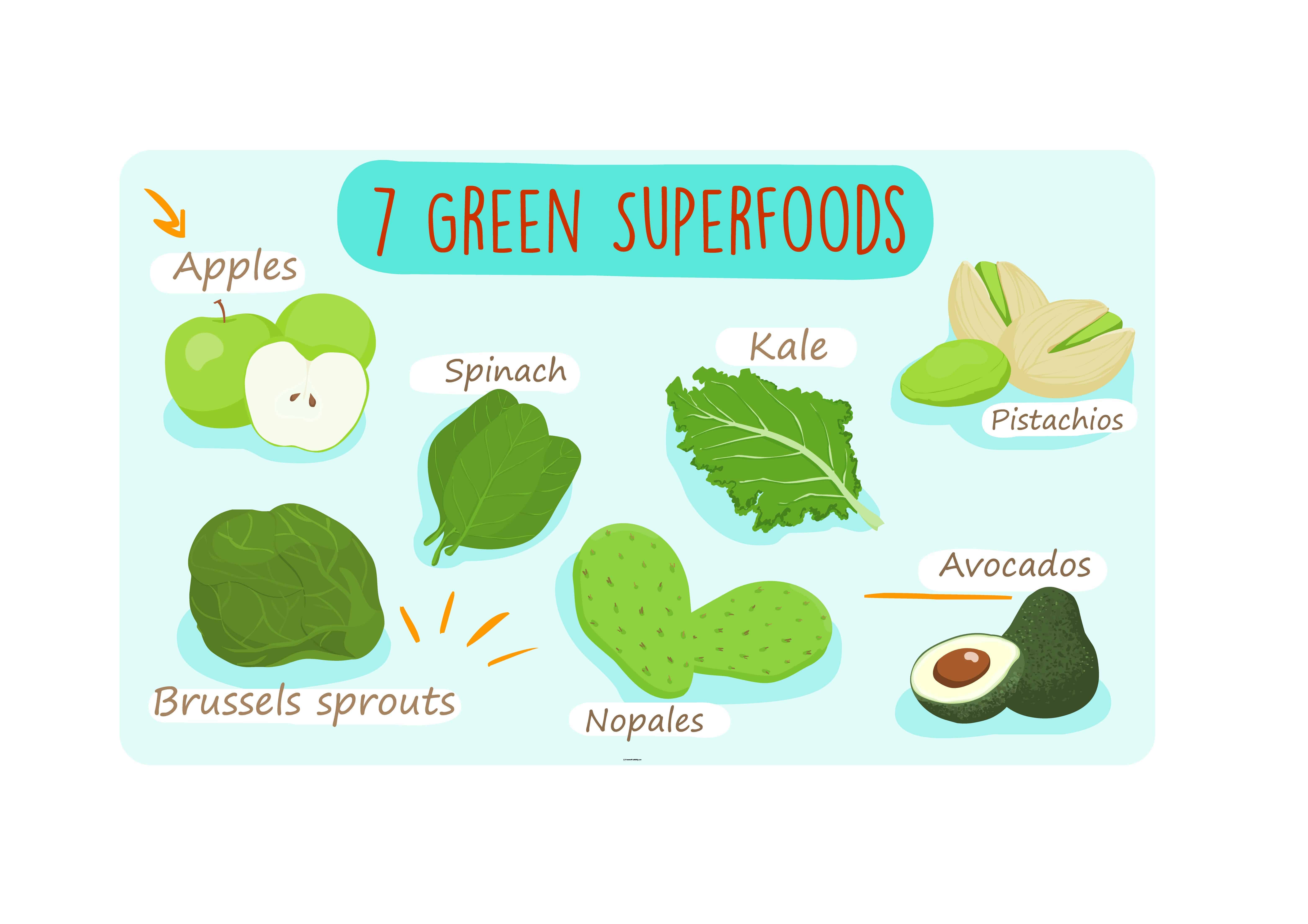You are what you eat. According to scientific evidence, theory, and nutrition, it’s not just a saying. You will find a strong correlation between foods you eat and their ability to boost your mood.
Your daily food choices can be a powerful arsenal to your natural healing regimen and overall wellbeing. In some cases, if you are deficient in certain vitamins or minerals, increasing your intake can stabilize your mood.
Children and teens are also susceptible to feeling the effects of dietary deficiencies. In other words, anyone can benefit from a well-rounded diet that promotes cognitive health and hormonal regulation.
Whether your doldrums are seasonal, deficiency caused, or related to a mental health condition, you can see additional benefits by reducing the amount of foods that trigger bad moods and upping the ones that will lift it.
Plus, don’t forget about sunshine, exercise, and other uplifting habits that help to bust a bad mood.
How Does Food Boost Your Mood?
First of all, foods can affect your mood in either a positive way or a negative way. When you eat certain foods, your brain releases chemicals. These chemicals induce a variety of sensations that are powerful enough to alter your mood.
Hormonal fluctuations can also cause a sour mood. The same applies to the weather, stress, and other outside depressive factors. Since you can’t control some of these factors, concentrate on what you can control. Use alternative therapies and treatments, like exercise and sunshine, to combat what you cannot. (1, 2)
Brain Chemicals that Influence Your Mood
• Serotonin: can lessen depressive moods
• Dopamine: provides energy
• Norepinephrine: provides energy
• Acetylcholine: enhances mood and memory
There is power in the nutrients you consume. Aim for a good balance of quality protein, essential minerals and vitamins, and fibrous complex carbohydrates in your meals.
Mood Boosting Vitamins and Minerals
• Chromium
• Calcium
• Folate
• Iron
• Magnesium
• Omega-3 fatty acids
• Vitamins B6 & B12
• Vitamin D
• Zinc
• Protein
• Vitamin C
What Foods Should You Avoid if You Hope to Boost Your Mood?
We are glad you asked because some foods can reverse your mood, even if they provide a temporary high-like feeling. They can also wreak havoc on dieting efforts and cause other health issues when consumed on a regular basis. These foods make it easy to overindulge, so you need to exercise strict moderation.
Sugar
Sugar is much like a drug. It offers you a short-lived, mood-boosting high, but the crash-and-burn effect follows it. It does not stop there. Strong urges and cravings to eat or drink more latch into your brain too. (3, 4)
Do your best to avoid added sugars, but do not replace them with the fake stuff. They are mood killers too. Opt for less if you cannot quit sugar cold turkey, and if you must use an artificial sweetener, use a natural one like pure stevia or monk fruit. (5)
Highly Processed foods
We all know by now that processed foods are not good for our bodies. Like sugar, they can offer a temporary mood enhancement. It will not last long.
After eating highly processes foods, you will only feel worse. You might also be laden with guilt, which will not prevent you from eating more of the wrong foods. That is from a mood perspective. It does not even begin to peel back the layers of pseudo foods and chemicals inside processed foods that can damage your body.
Gluten
Excess wheat diets and psychiatric illness share a link. Wheat germ agglutinin (WGA) is the culprit. You can find concentrations is whole wheat and sprouted varieties.
One study found a negative link between the mental health of elderly participants without celiac disease. Other studies have discovered a prevalence of gluten sensitivity in schizophrenia patients. (6, 7, 8, 9)
You will not need to become gluten free, but you might wish to limit your intake for a while or try a temporary removal of wheat gluten from your diet. Remember, you can still enjoy carbohydrates. If you notice a huge change in your mood, then you can consider if a gluten free lifestyle is right for you.
Does Your Meal Frequency Matter?
Science is on the fence with countless opinions that vary between intermittent fasting, smaller meals more frequently, or the standard three meals a day. Each one provides some semblance of studies to back their claims.
Use what method works for you and maintains your blood sugar at a healthy level without crashing. One day you might need smaller, more frequent meals. On another day, you might require three meals to achieve stability. Boost your mood by altering the frequency of your meals to your body’s needs.
10 Healthy Foods That Boost Your Mood
Keep in mind that, unlike sugar and processed junk food, healthy foods might not make you feel an instant high. Give your body a few weeks to adjust before ruling out changes. This is especially true if you are also overhauling your diet and ditching a sugar addiction.
1.Broccoli
Chromium gives broccoli a giant boost that has a direct correlation to your mood, according to studies. The nutrient enhances production of serotonin, melatonin, and norepinephrine. Broccoli is also low in calories, and you can eat it in a variety of ways. (10)
2. Black-eyed Peas
Folate provides your brain with the support it needs to create serotonin. Depression and mood changes can signal a folate deficiency too. Folate enhances antidepressant use, so if you are already taking medication for your mood, you might consider adding more folate-rich foods like black-eyed peas.
3. Lentils
Did you know you could experience moodiness, depression, and other mental symptoms if you are not consuming enough iron? Even if your iron levels are normal, lentils provide healthful benefits and plant protein. They also serve as an excellent source of folate.
4. Almonds
Nuts like almonds, peanuts, and cashews assist your body in producing serotonin. This is due to their magnesium content, which aids drug resistant depression. Allergic to nuts? Spinach packs the same amount of mood lifting magnesium.
5. Chia Seeds
Omega-3 fatty acids have a direct correlation to brain health. Studies show a decreased risk of depression and suicide when you consume a diet rich in the nutrient too. Chia seeds are so simple to add to any diet, and the nutrient rich “super food” belongs on everyone’s plate.
6. Garbanzo Beans
Garbanzo beans (chickpeas) are a versatile food that packs a punch of vitamin B6, which boosts your mood and regulates brain function. In addition to B6, they contain folate, protein, and magnesium too.
A B6 deficiency can cause depression, weakened immune system, and confusion.
7. Nutritional Yeast
Vitamin B12 is difficult for vegans and vegetarians to receive through their diet. Supplements can help, but many people would rather obtain their nutrients from their food. Nutritional yeast offers you a complete B-vitamin complex in a seasoning form.
Sprinkle it on air-popped popcorn. Add it to a traditional salad. Zest up your mashed potatoes with it. Its slightly-salty cheese flavor pairs well with nearly any dish.
8. Raw or Dried Mushrooms
The vitamin D in mushrooms is an important nutrient for mood stability and warding off depression. It is also one of the better natural sources for vegetarian and vegan lifestyles, next to fortified non-dairy milk and orange juice. Juice, however, contains a lot of sugar that can spike blood sugar and create a crash.
Different mushroom varieties contain varied amounts of vitamin D, but avoid white button mushrooms as a source, since they contain none.
9. Roasted Pumpkin Seeds
A diet rich in zinc offers multiple benefits to your body, immune system, and your mood. Like other nutrients, your mood can change when you are deficient. However, plant-based sources can have lower absorption levels that leads to deficiencies in vegans and vegetarians.
Roasted pumpkin seeds and cashews are two plant-based sources you can add to your diet. Chickpeas and fortified cereals and milks are other choices for a zinc boost.
10. Dark Leafy Greens
The calcium in kale, spinach, and collard greens offer a boost to your mood and provide a punch of powerful nutrients and antioxidants. Calcium and vitamin D pair well together to tackle depression and depressive symptoms.
One additional benefit for premenopausal women is that calcium intake can balance PMS related moods. Scientists remain unclear on why calcium seems to stabilize the mood. Of course, you have plenty of other reasons to nosh on your greens. They are a good source of fiber and folate too.
Final Thoughts on How to Boost Your Mood with Food
Moderation is still a key factor when you are using food to boost your mood, but you can generally consume these healthier choices without too much fear of going overboard because of the healthy fats, fiber, and protein.
Eating a diet rich in the essential minerals and vitamins for brain and mood health might prevent seasonal depression and improve depressive mood disorders and anxiety too. However, they are not a replacement for your medication or therapy. Nutrition, medication, and therapy can work together.
If you are currently addicted to sugar and processed foods, you might have side effects and cravings for the unhealthy foods for a week or two. It does get better once you break the cycle, so be kind to your body and mind.














 Community
Community

